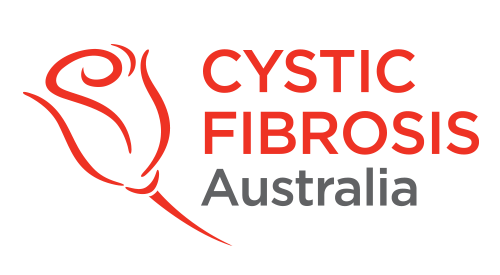How will I know my baby/child has a chest infection?
It is important to learn what is normal for your child; do they normally cough? What does their normal breathing look like? Knowing this can help you see small changes which may indicate early signs that your child has, or is developing a lung infection. Every child will be different and may have different symptoms at different stages in their life.
Monitoring any of the following symptoms may help you to learn patterns in your child’s health, and help to decide when you contact your care team or primary healthcare provider:
- Cough -your child might start to cough or their cough may be different compared to their usual cough. Their cough may become more moist or wet, or become more frequent or be present at night when previously it was not
- Sputum (or mucus) – your child may start coughing up sputum. If they usually have sputum, you may notice a change in the colour or the volume. You may notice your baby swallowing mucus, or they might have small vomits with mucus present
- Persistent throat clearing
- Wheezing – your child may start making a whistling noise while breathing
- Difficulty exercising – your child may not be as active as usual or find they cannot keep up with others during physical activity
- Changes in breathing – your child may be breathing faster than normal or with increased effort or be short of breath, or puffed easily.
- Changes in sleep – you may notice your child is sleeping more often, or longer naps, or you might find they are waking during their sleep due to a cough, or changes in their breathing.
When people with CF have a chest infection, they often feel generally unwell, tired, and lacking in energy. In infants and young children, you may notice a change in how much or often your child is drinking or eating (including changes in their ability to breastfeed or take the bottle for babies). Fevers may occur, but not always. Some individuals with CF will not appear to be sick though. Changes may still be happening in the lungs of these individuals. Children with CF may not feel or look unwell even when an infection is occurring, so changes in cough and sputum, or other symptoms specific to the individual are really important to monitor. Work with your CF team to develop an action plan to deal with changes in symptoms. Early intervention may prevent things from worsening. If you are unsure about your child’s symptoms your healthcare team would rather you contact them to discuss them early and they can either reassure you, help you understand more about what the symptoms might mean, or start treatment if needed.
The following audio is to help you learn more about children’s different coughs, and airway sounds. Every child will be unique in their symptoms, and you will get to know your own child’s cough, and sound of airway symptoms as they grow. We hope these will be helpful to develop this knowledge more. Work with your physiotherapist and your care team to understand more about your child’s symptoms. These audio examples have been captured on the voice memo facility on a mobile phone, you might consider using this to record your child’s cough and talk to your clinic at next visit if you have noticed something has changed or is new in their sounds.
Young child coughing during play
- You can often hear sputum when children are laughing
- Tickling can be a good way of getting a child to laugh and move secretions around
- If you child is old enough ending with a big cough is great
- Some respiratory illnesses make children cough very frequently
- Sometimes the cough is wet and some sputum is coughed up and swallowed
- A lot of the time, the cough is dry and can sound quite distressing
- Please let your CF team or GP know if you are concerned, especially if your child looks to be working hard with their breathing
- In babies who are unwell with a respiratory illness, sometimes you can hear sputum in their airways
- You might need to get your ear nice and close to be able to hear these sounds
- You can even place your hand on their chest and ‘feel’ for sputum moving in there
- Please let your CF team or GP know if you are hearing this and you are concerned
- When this child coughs, it sounds like there is some sputum there which is a bit sticky and difficult to clear
- Techniques you’ve learned like airway clearance or using certain nebulised medications will be helpful









